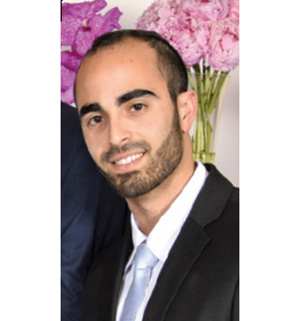
Anticipating a heated and fierce confrontation with his big brother Esav, surprisingly, the Torah tells us that Yaakov “became extremely afraid” (Bereishit 32:8). Indeed, he was “bugging out”; he was terrified. Why was he so afraid of Esav? The Da’at Zekeinim gives two explanations: 1) Either he was afraid that Esav exceeded him in the area of honoring one’s parents, and that merit would prevail and deem Esav more worthy to win the battle 2) Or he was afraid that Esav’s merit of living in Eretz Yisrael would prevail and deem him more worthy to win the battle.
As bewildering as it is, seemingly Yaakov was afraid that a single merit of Esav—either that of honoring one’s parents, or that of living in the holy land—would be so significant that Esav would be granted the right to achieve victory in the upcoming battle.
Let’s briefly put things in perspective. Yaakov versus Esav: Yaakov was a pure person, dwelling in the tents of Torah study, learning straight, without stopping, for 14 years in the yeshiva of Shem and Ever. An upright, honest and just individual whose image God keeps on His throne. Our patriarch. On the other hand, Esav was a hunter, murderer, deceiver, idolater and a promiscuous individual. A person who gave up his birthright (bechora) for a simple bowl of lentils. Who should win? From our perspective, it seems obvious that Yaakov should have nothing to fear, so why did he?
When someone does a mitzvah, it’s virtually impossible to know the significance inherent in that act. There are endless calculations that can be made. For example, the sincerity in doing the act, the level of happiness, humility, emunah, devotion, alacrity, preparation and concentration; the level of appreciation and accordance of importance that is given of that mitzvah; the self-control involved in overcoming any difficulty that may have risen in preventing one from doing the mitzvah, or overcoming any other possible challenges, etc. There is an endless slew of factors involved whenever someone does a mitzvah. It’s not as simple as we think. When one considers the amount of factors involved, who knows whether the one deed of a simple person or even a “wicked” person outweighs the quantity of mitzvot that a “holier” person accomplished.
Perhaps Yaakov Avinu looked at Esav and saw that although Esav only excelled in one mitzvah [depending on which explanation you would follow in the Da’at Zekeinim], who knows whether the quality of that one mitzvah Esav possessed would prevail over the quality and quantity of mitzvot that Yaakov possessed. From our humanly eyes, one can’t really know. Therefore, that may be why Yaakov feared Esav, for perhaps he deemed him as being more meritorious and worthy to win the battle.
One way to have humility in relation to other people is by recognizing that they may be on a higher level than us spiritually, even though it may seem like we are on a higher level than them. Their few deeds may have been far more significant than our many deeds. There may be a natural tendency in human nature to judge the esteem of another person and to believe we are greater than them. Perhaps one avenue toward promoting a “non-jew’gmental” attitude toward other Jews—particularly those who seem to be on a lower level of observance—is to be aware that the quality of their deeds may in fact outweigh ours. For all we know, they may be more meritorious than us. Indeed, we never know.
Binyamin Benji is a graduate of Yeshivas Rabbeinu Yitzchak Elchanan, and Wurzweiler School of Social Work. He currently learns in Eretz Yisrael, and is the author of the Sephardic Congregation of Paramus’ weekly Torah Talk. He can be reached at benjibenji26@gmail.com.









